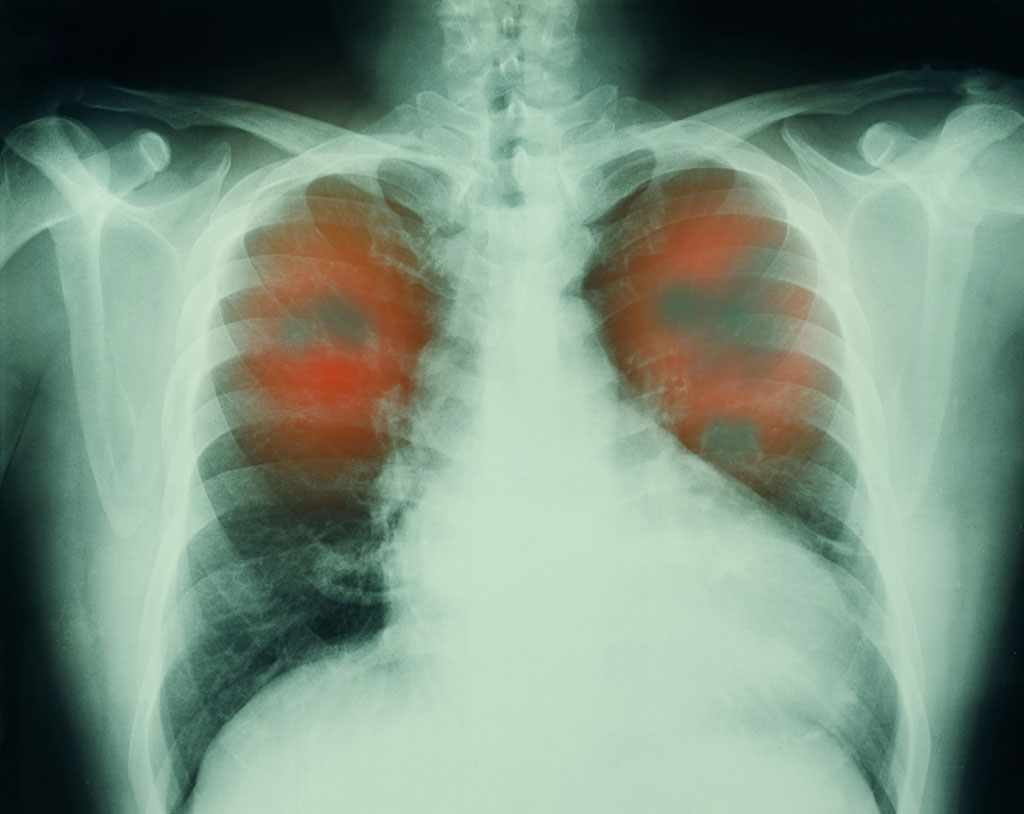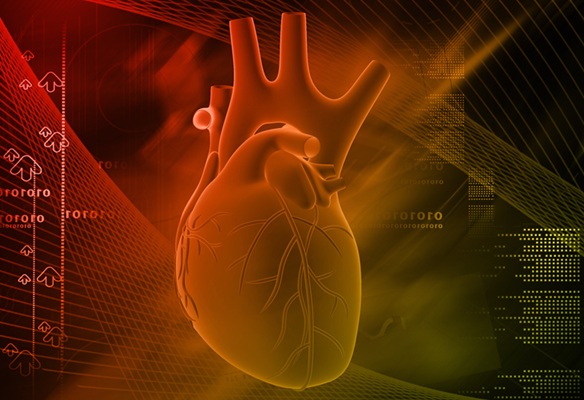AI Identifies Non-Smokers at High Risk for Lung Cancer from Single Chest X-Ray
|
By MedImaging International staff writers Posted on 08 Dec 2023 |

Lung cancer is currently the leading cause of cancer mortality. Notably, 10-20% of lung cancer cases are diagnosed in individuals classified as "never-smokers" – those who have either never smoked or have smoked fewer than 100 cigarettes in their lifetime. The prevalence of lung cancer in never-smokers is increasing, and these cases are often more advanced at the time of discovery due to the lack of early detection methods typically used for smokers. Now, a new study has found that an artificial intelligence (AI) tool is capable of identifying non-smokers at high risk for lung cancer by analyzing routine chest X-ray images.
Conducted by the Massachusetts General Hospital (MGH, Boston, MA, USA), this study aimed to enhance the prediction of lung cancer risk in never-smokers. The research team employed a deep learning model, a sophisticated form of AI, to analyze chest X-ray images from the electronic medical record, searching for patterns indicative of disease. The deep learning model, named "CXR-Lung-Risk," was trained using 147,497 chest X-rays from 40,643 asymptomatic individuals, both smokers and never-smokers. This model was designed to assess lung-related mortality risk from a single chest X-ray.
The effectiveness of the model was then tested on a separate cohort of never-smokers who underwent routine outpatient chest X-rays between 2013 and 2014. The primary measure was the incidence of lung cancer within six years, identified via International Classification of Disease codes. The model categorized the risk scores into low, moderate, and high-risk groups based on predetermined risk thresholds. In the study group of 17,407 patients, averaging 63 years of age, the model classified 28% as high risk, and within this group, 2.9% later had a diagnosis of lung cancer. The high-risk group surpassed the 1.3% six-year risk threshold where lung cancer screening CT is recommended by the US National Comprehensive Cancer Network guidelines. After taking into account age, sex, race, previous lower respiratory tract infection, and prevalent chronic obstructive pulmonary disease, the high-risk group still had a 2.1 times greater risk of developing lung cancer than the low-risk group.
"This AI tool opens the door for opportunistic screening for never-smokers at high risk of lung cancer, using existing chest X-rays in the electronic medical record," said senior author Michael T. Lu, M.D., M.P.H., director of artificial intelligence and co-director of CIRC at MGH. "Since cigarette smoking rates are declining, approaches to detect lung cancer early in those who do not smoke are going to be increasingly important."
Related Links:
MGH
Latest Radiography News
- Machine Learning Algorithm Identifies Cardiovascular Risk from Routine Bone Density Scans
- AI Improves Early Detection of Interval Breast Cancers
- World's Largest Class Single Crystal Diamond Radiation Detector Opens New Possibilities for Diagnostic Imaging
- AI-Powered Imaging Technique Shows Promise in Evaluating Patients for PCI
- Higher Chest X-Ray Usage Catches Lung Cancer Earlier and Improves Survival
- AI-Powered Mammograms Predict Cardiovascular Risk
- Generative AI Model Significantly Reduces Chest X-Ray Reading Time
- AI-Powered Mammography Screening Boosts Cancer Detection in Single-Reader Settings
- Photon Counting Detectors Promise Fast Color X-Ray Images
- AI Can Flag Mammograms for Supplemental MRI
- 3D CT Imaging from Single X-Ray Projection Reduces Radiation Exposure
- AI Method Accurately Predicts Breast Cancer Risk by Analyzing Multiple Mammograms
- Printable Organic X-Ray Sensors Could Transform Treatment for Cancer Patients
- Highly Sensitive, Foldable Detector to Make X-Rays Safer
- Novel Breast Cancer Screening Technology Could Offer Superior Alternative to Mammogram
- Artificial Intelligence Accurately Predicts Breast Cancer Years Before Diagnosis
Channels
MRI
view channel
New MRI Technique Reveals Hidden Heart Issues
Traditional exercise stress tests conducted within an MRI machine require patients to lie flat, a position that artificially improves heart function by increasing stroke volume due to gravity-driven blood... Read more
Shorter MRI Exam Effectively Detects Cancer in Dense Breasts
Women with extremely dense breasts face a higher risk of missed breast cancer diagnoses, as dense glandular and fibrous tissue can obscure tumors on mammograms. While breast MRI is recommended for supplemental... Read moreUltrasound
view channel
New Incision-Free Technique Halts Growth of Debilitating Brain Lesions
Cerebral cavernous malformations (CCMs), also known as cavernomas, are abnormal clusters of blood vessels that can grow in the brain, spinal cord, or other parts of the body. While most cases remain asymptomatic,... Read more.jpeg)
AI-Powered Lung Ultrasound Outperforms Human Experts in Tuberculosis Diagnosis
Despite global declines in tuberculosis (TB) rates in previous years, the incidence of TB rose by 4.6% from 2020 to 2023. Early screening and rapid diagnosis are essential elements of the World Health... Read moreNuclear Medicine
view channel
New Imaging Approach Could Reduce Need for Biopsies to Monitor Prostate Cancer
Prostate cancer is the second leading cause of cancer-related death among men in the United States. However, the majority of older men diagnosed with prostate cancer have slow-growing, low-risk forms of... Read more
Novel Radiolabeled Antibody Improves Diagnosis and Treatment of Solid Tumors
Interleukin-13 receptor α-2 (IL13Rα2) is a cell surface receptor commonly found in solid tumors such as glioblastoma, melanoma, and breast cancer. It is minimally expressed in normal tissues, making it... Read moreGeneral/Advanced Imaging
view channel
First-Of-Its-Kind Wearable Device Offers Revolutionary Alternative to CT Scans
Currently, patients with conditions such as heart failure, pneumonia, or respiratory distress often require multiple imaging procedures that are intermittent, disruptive, and involve high levels of radiation.... Read more
AI-Based CT Scan Analysis Predicts Early-Stage Kidney Damage Due to Cancer Treatments
Radioligand therapy, a form of targeted nuclear medicine, has recently gained attention for its potential in treating specific types of tumors. However, one of the potential side effects of this therapy... Read moreImaging IT
view channel
New Google Cloud Medical Imaging Suite Makes Imaging Healthcare Data More Accessible
Medical imaging is a critical tool used to diagnose patients, and there are billions of medical images scanned globally each year. Imaging data accounts for about 90% of all healthcare data1 and, until... Read more
Global AI in Medical Diagnostics Market to Be Driven by Demand for Image Recognition in Radiology
The global artificial intelligence (AI) in medical diagnostics market is expanding with early disease detection being one of its key applications and image recognition becoming a compelling consumer proposition... Read moreIndustry News
view channel
GE HealthCare and NVIDIA Collaboration to Reimagine Diagnostic Imaging
GE HealthCare (Chicago, IL, USA) has entered into a collaboration with NVIDIA (Santa Clara, CA, USA), expanding the existing relationship between the two companies to focus on pioneering innovation in... Read more
Patient-Specific 3D-Printed Phantoms Transform CT Imaging
New research has highlighted how anatomically precise, patient-specific 3D-printed phantoms are proving to be scalable, cost-effective, and efficient tools in the development of new CT scan algorithms... Read more
Siemens and Sectra Collaborate on Enhancing Radiology Workflows
Siemens Healthineers (Forchheim, Germany) and Sectra (Linköping, Sweden) have entered into a collaboration aimed at enhancing radiologists' diagnostic capabilities and, in turn, improving patient care... Read more





















